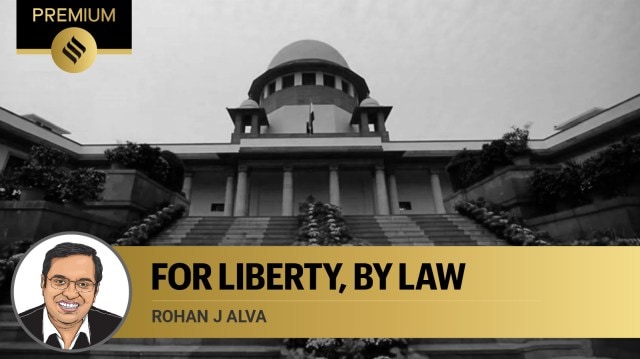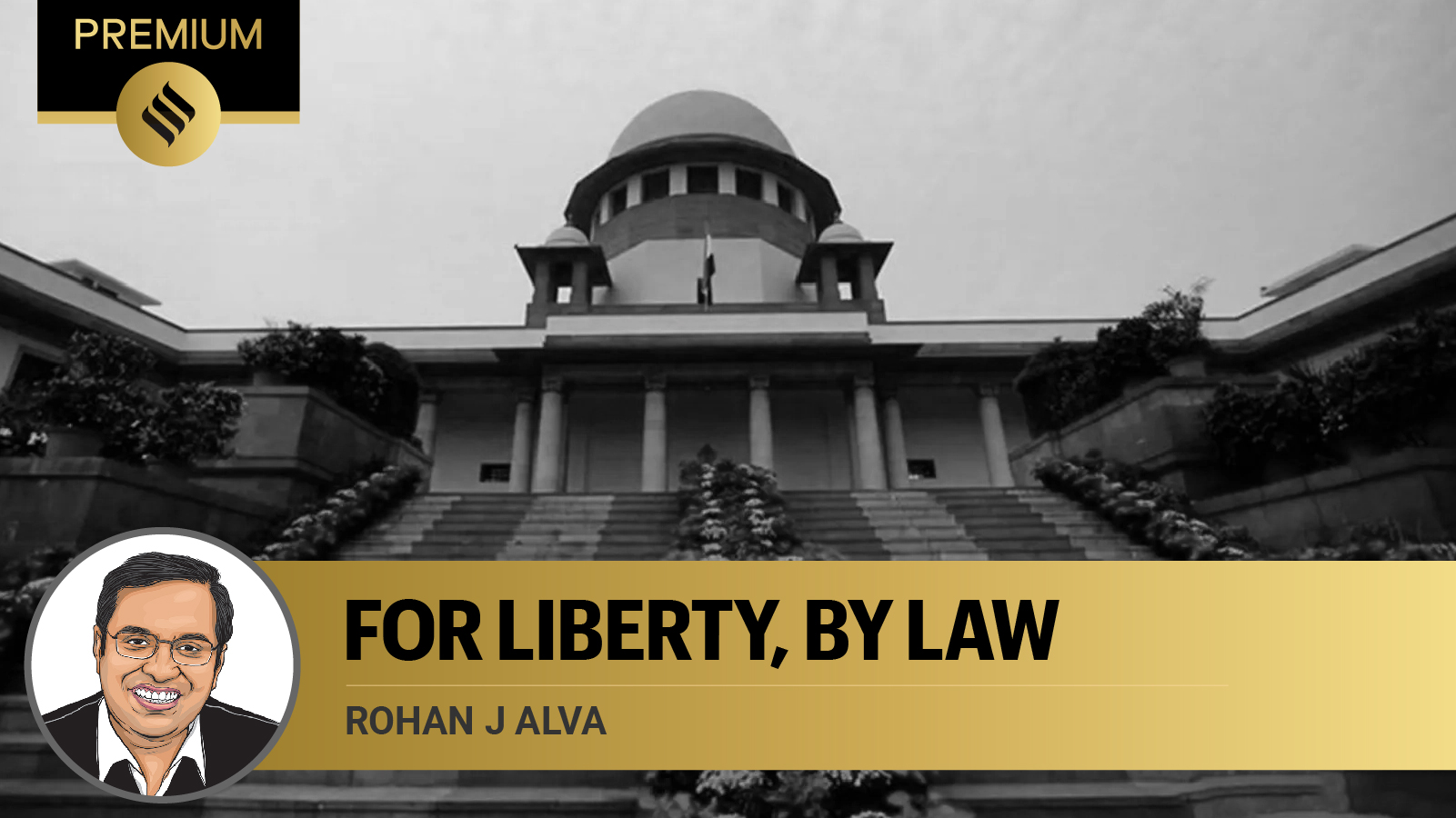
It may have been cold outside, but on December 6, 1948, tempers in the Constituent Assembly ran high. The Assembly was poised to discuss the future of inarguably one of the most critical entitlements offered by the Constitution — the right to life and personal liberty guaranteed by Article 21. In an erudite and scintillating speech, K M Munshi presented a programmatic argument on why due process protection has to be given for a person’s life and liberty. These rights could not become the plaything of laws. In a clash between due process rights and ordinary legislation, the Constitution could not be silent. Irrespective of the rationale behind any law, this fundamental right ought not to be silenced. Munshi was not alone. He received widespread support from the likes of K T Shah, Bakshi Tek Chand and Purnima Banerji. Their vision and all that they fought for appear to be coming true.
In July, a division bench of the Supreme Court (SC), comprised of Justice J B Pardiwala and Justice Ujjal Bhuyan, examined whether a person would be entitled to bail even under strict laws like the UAPA if the trial proceeded at a snail’s pace. In other words, do constitutional courts have supreme discretion to grant bail irrespective of the nature of the law involved? In an analysis that demonstrates a sophisticated understanding of due process rights under the Constitution, the SC invoked Article 21 and the right to life and personal liberty to declare that when a trial has been prolonged, the accused person cannot be kept behind bars forevermore, notwithstanding the seriousness of the charge. In other words, no law can sanction permanent custody behind bars. As the SC observed, the right to life and liberty, “is overarching and sacrosanct.” “A constitutional court,” the Court said, “cannot be restrained from granting bail to an accused on account of restrictive statutory provisions in a penal statute if it finds that the right of the accused undertrial under Article 21 of the Constitution of India has been infringed.” Stated simply, onerous restrictions contained in the penal laws cannot constrain the powers of a constitutional court to protect due process rights.
This trend in judicial thought was reaffirmed by the SC once again last month when a bench of Justices B R Gavai and Justice K V Viswanathan speaking in the context of bail under the Prevention of Money Laundering Act, observed that since the right to life and personal liberty is a “higher constitutional right, statutory provisions should align themselves to the said higher constitutional edict.” The most illuminating part of this decision is the emphasis on ensuring the protection of due process rights, and the statement that statutes cannot prevail over fundamental rights, especially the right to life and liberty.
In pursuit of protecting fundamental rights, the Court reasoned, onerous provision on bail in the PMLA can never be taken to mean that, “deprivation is the norm and liberty is the exception.”
There was a time in Indian constitutional jurisprudence when one of the most time-honoured principles was that bail is the rule and jail is the exception. It was the most logical outcome of the idea of preserving personal liberty. Legendary justices such as Krishna Iyer strove hard to make this the default rule. The endeavour was that when a person is taken into custody, they must ordinarily be released on bail unless compelling circumstances to the contrary are shown. The tide against this principle seemingly turned, particularly after the enactment of laws that create such a high threshold for seeking bail that it sometimes becomes virtually impossible to surmount. The PMLA and UAPA are examples of such. Yet, as these recent decisions demonstrate, courts can maintain their fidelity to the Constitution while also providing a working framework for laws which deal with special situations. Nonetheless, and at long last, it now appears that juristic thought is moving towards reviving the pro-bail approach.
The robust protection of personal liberty and the creation of a constitutional architecture that ensures this is something the members of the Constituent Assembly repeatedly asserted. They may have suffered a temporary setback, for Article 21 makes no mention of due process rights. But they prevailed in the long run. In no uncertain terms, these decisions vindicate the vision that the founding mothers and fathers had for India. For them, the triumph of due process rights lay at the heart of fundamental freedoms. In the 75th anniversary year of the adoption of the Indian Constitution by the Assembly, this particular vision has received its most emphatic reassurance.
The writer is a lawyer and author of Liberty After Freedom: A History of Article 21, Due Process and the Constitution of India and A Constitution to Keep: Sedition and Free Speech in Modern India



